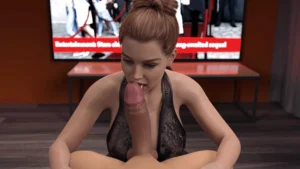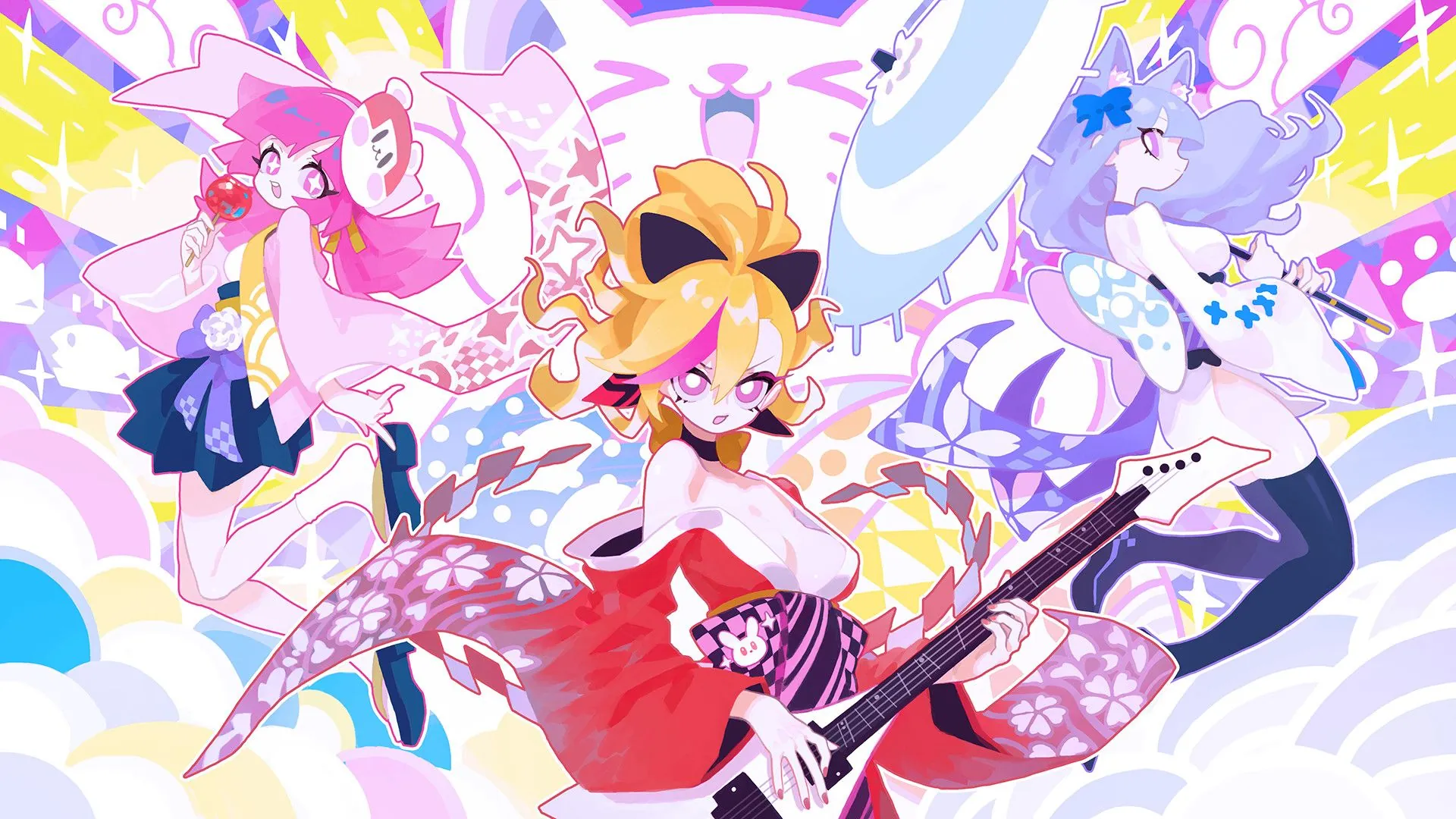
Play Adverse Effects
Adverse Effects review
Exploring the Impact and Player Experiences of the ‘Adverse Effects’ Game
The ‘Adverse Effects’ porn game has attracted attention for its unique blend of adult content and interactive gameplay. This article dives into the various adverse effects associated with playing this game, from emotional and psychological impacts to social and behavioral consequences. Whether you’re a player or simply curious, understanding these effects can help you make informed decisions about engagement with the game.
Understanding the Psychological Impact of ‘Adverse Effects’ Porn Game
You’ve probably heard about the ‘Adverse Effects’ game, maybe even dabbled in it yourself. It’s immersive, intense, and designed to pull you into its world. But what happens when the game stops and real life begins? The psychological impact of the Adverse Effects game is a topic we can’t afford to ignore. 🎭 This chapter isn’t here to shame anyone’s gaming choices, but to have an honest, supportive conversation about how these digital experiences can shape our inner world and what we can do about it.
It’s all about understanding the connection between gaming and emotional well-being, ensuring that our hobby remains a source of fun, not a fountain of stress.
How Gameplay Influences Emotional Well-being
The ‘Adverse Effects’ game is built on a powerful foundation of choice, consequence, and deep narrative immersion. You’re not just a passive observer; you’re an active participant in a story that can feel incredibly real. This is where the magic—and the potential difficulty—lies. The game’s ability to make you care about its characters and outcomes is a testament to its design, but it also means the emotional stakes are high. 😥
When you’re deeply invested, the line between the game’s reality and your own can start to blur. A heartbreaking outcome for a character you’ve grown attached to can leave a genuine pang of sadness. A high-stakes, stressful scenario can leave your heart racing long after you’ve closed the game. This isn’t a sign of weakness; it’s a sign that you’re engaged. However, without awareness, this engagement can tip into a more significant psychological impact of the Adverse Effects game.
The core loop of the game often involves navigating complex social and intimate situations, which can subconsciously mirror our own anxieties and desires. This can lead to a unique form of Adverse Effects game emotional distress, where the feelings generated in the game don’t just vanish when you quit. They linger, coloring your mood and potentially affecting your outlook. It’s crucial to recognize this not as a flaw in you as a player, but as a powerful effect of the medium itself. Being mindful of this is the first step in protecting your player mental health with Adverse Effects.
Common Psychological Challenges Reported by Players
So, what does this look like in practice? Through forums, discussions, and personal stories, a pattern of emotional challenges in the Adverse Effects game begins to emerge. Players are remarkably open about their struggles, which helps create a community of understanding. 🤝
Here are some of the most frequently reported experiences:
- Feelings of Guilt or Remorse: Making a “bad” choice that leads to a negative outcome for an in-game character can trigger a surprising amount of guilt.
- Anxiety and Overthinking: The weight of consequential decisions can lead to pre- and post-gameplay anxiety, with players ruminating on their choices.
- Emotional Drain: The intense narrative can be exhausting, leaving players feeling emotionally spent or numb after a long session.
- Mood Contagion: The game’s tense, dramatic, or melancholy tone can directly influence a player’s real-world mood, leading to irritability or sadness.
- Disconnection from Reality: In some cases, heavy immersion can make the real world feel dull or unsatisfying by comparison, creating a desire to escape back into the game.
To give these challenges a real face, let’s look at a personal anecdote. One player, let’s call him “Mark,” shared his story online. He described getting deeply invested in a particular character’s storyline over several weeks. When the narrative took a tragic turn based on a decision he made, he was shocked by his own reaction. “I felt this heavy sense of guilt for days,” he wrote. “It was just a game, I knew that logically, but I couldn’t shake the feeling that I’d failed this digital person. It affected my sleep and made me withdrawn from my partner. That’s when I realized I needed to step back and reassess my relationship with the game.” Stories like Mark’s are vital case studies for the Adverse Effects game, showing that these emotional challenges are both real and manageable.
| Reported Challenge | Common Player Description |
|---|---|
| Guilt & Remorse | “I feel responsible for the bad things that happen to the characters.” |
| Decision Anxiety | “I spend more time stressed about making the ‘right’ choice than actually enjoying the game.” |
| Emotional Drain | “After playing, I just feel empty and have no energy for anything else.” |
| Mood Contagion | “The game’s sad ending put me in a funk for the rest of the day.” |
Strategies to Manage Negative Emotional Responses
Recognizing the problem is only half the battle. The other, more empowering half, is managing negative emotions from gameplay. The good news is that you have more control than you might think. It’s all about building healthy habits and boundaries around your play. 💪
Here are some practical, actionable tips you can start using today:
The most powerful tool you have is the ‘Quit Game’ button. Never be afraid to use it if you feel overwhelmed.
- Set a “Emotional Check-in” Timer: Instead of playing for hours on autopilot, set a timer for every 30-60 minutes. When it goes off, pause the game and ask yourself: “How do I feel right now?” This simple act of mindfulness can help you catch a negative emotional spiral early.
- Curate Your Session Length: Be intentional. Decide before you start playing how long you’ll play. A one-hour session might be a fun escape, while a four-hour marathon could leave you feeling drained. Shorter, more focused sessions are often better for your player mental health with Adverse Effects.
- Create a Post-Game Decompression Ritual: Don’t jump straight from an intense game session to work or family time. Have a 15-minute buffer activity. This could be listening to upbeat music, stepping outside for fresh air, watching a funny YouTube video, or doing a few stretches. This helps your brain transition back to reality.
- Talk About It (Carefully): Find a trusted friend or a dedicated online community where you can process your in-game experiences. Verbally articulating what you’re feeling can rob it of its power. Just be mindful of sharing overly explicit details with those who haven’t consented to that conversation.
- Diversify Your Entertainment: Ensure that ‘Adverse Effects’ isn’t your only source of relaxation. Mix in other hobbies—reading, exercise, different types of games, social activities. This prevents you from forming a singular emotional dependency on one game.
- Reframe “Bad” Outcomes: Remember that in a game about consequences, there are no “bad” choices, only different narrative paths. Each outcome is a piece of the story. Detaching your self-worth from the in-game results can significantly reduce feelings of guilt and anxiety.
Ultimately, protecting your mental well-being is about balance. The psychological impact of the Adverse Effects game is real, but by being proactive, you can enjoy the deep, emotional storytelling without letting the emotional distress take over. Your gaming and emotional well-being are not mutually exclusive; with a little awareness and these strategies, you can ensure they work in harmony. You are the player, in control of both the game and your response to it. 🛡️
The ‘Adverse Effects’ porn game can have significant psychological and emotional impacts on its players, ranging from distress to challenges in managing real-life relationships. Recognizing these effects early and adopting practical strategies can help mitigate negative outcomes. If you or someone you know is affected, consider balancing gameplay with other activities and seeking support when needed. Staying informed and mindful about your gaming habits is key to maintaining overall well-being.





















